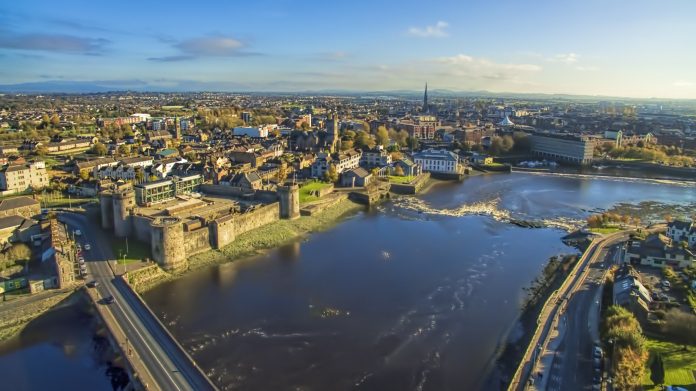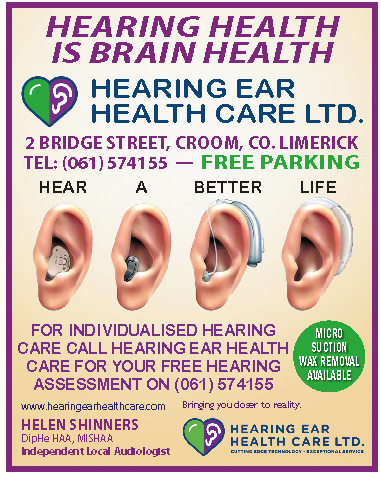
I know you got soul

When it comes to tooting one’s own horn, Corkonians aren’t exactly shy. They’re a proud people, some might even say smug. To outsiders their self-confidence and zeal is a source of bemusement, we look at them, at the place they live, and ask, “What have ye got to be so happy about?” But happy they are. And when they’re not telling us about their rebellious spirit, they’re reminding us that not only is Cork the real capital of Ireland, but it’s home to the funniest, wittiest and most charming shower of feckers to ever breath air.
Sadly for our western neighbours, the Dubs have the whole capital city thing pretty much sewn up. It’d take one hell of a coup, an unprecedented act of rebellion, to shift the jackeens from their perch at this stage. No, Cork is going to have make do with the usual grandiose claims; biggest county, won the war, 1990, something, something, Roy Keane, Sonia O’Sullivan. But wait, good news is hand. There’s a new mantle up for grabs, and the langers are just the lads to grab it.
According to an academic from the University of Oregon, Cork is uniquely placed to become the ‘hipster capital of Ireland’. That’s right, amidst all those high-pitched accents and superior smiles, lies a potential epicentre for all things hipster. The academic, a Mr Christoph Lindner, believes Irish cities can accelerate their regeneration by embracing hipster culture, a belief backed up by Cork County Council who describe hipsters as thus: “people who have their own set of values, reject the mainstream and take control over their identity and economy.” Was there ever a more apt description of a Corkman?
Quite frankly, they are welcome to that title. If Cork wants to become the capital of shit beards and skinny jeans then so be it. I’ll even personally deliver as many hipsters as I can find to help speed up the process. But this got me to thinking; if Dublin is the actual capital of Ireland, and Cork is the soon-to-be hipster capital of Ireland, what is Limerick the capital of? It’s not culture, we know that – although with half of the paraphernalia associated with the 2020 bid still in place maybe someone should inform the council of that fact.

We could call it the rain capital of Ireland? I’ve lived in several different parts of Ireland as well as the notoriously damp north-west of England, but I’ve never seen rain like Limerick rain. A good Limerick downpour is akin to a religious experience, it cleanses both body and soul, pummels you into submission, and asks for nothing in return. The tourist board could really make a killing on this one, sell the idea to new-age types, have them traipsing round town on the most miserable of days, convinced they’re having some sort of epiphanic experience. But no, we can’t claim a monopoly on the rain. As soon as we started calling ourselves the rain capital, Galway would be along to take that off us too.
Something which Limerick can rightly be proud of however, is its literary history. It’s birthed many great writers, from Frank McCourt and Kate O’Brien, to contemporary talents like Kevin Barry and Donal Ryan. Again though, other counties have a greater claim to this title. Dublin may already be the official capital, but it boasts a list of writers unrivalled anywhere not just in Ireland but all over the world. No, we need something which is uniquely Limerick, something which truly defines not just the place, but the people too. And I think I know exactly what it is.
Since moving here almost seven years ago I’ve got to know quite a few of you, befriended one or two of you, and listened to an awful lot of you. And one thing stands out. You’re not going to like it, will probably take it as a criticism at first, but hear me out. Basically, you’re an incredibly cynical race of people. I’ve never seen eyes roll so much, heard as many derisive snorts or witnessed shoulders shrug with such beaten down apathy. Your motto should be, “Ah, sure what can you do?” It could be said that this is trait shared by other counties, but none do it with quite as much gusto as you lot.

This is probably just a defence-mechanism, a way of knocking yourselves before others get the chance, but it adds to your amiability. Some might argue that this defeatist attitude will ultimately stand in Limerick’s way, that it will result in the Treaty County always lagging behind the braggarts from Cork, the cultural Galwegians and the Waterford blaas. But you can’t hide from your identity, this is who you are; a put-upon, slightly miserable, tribe of people, a modest clan with an inbuilt pessimism and mistrust of anything sounding too good to be true. A great bunch of lads when all is said and done.
How do we turn that into a title though? We can hardly call Limerick the cynical capital of Ireland or the humble capital of Ireland. No, this needs to be distilled into something more palatable, something likely to bring more of those tourists our way. I have it: The Soul Capital of Ireland. Because Limerick people have got soul, not perhaps, in a musical sense, but certainly in a human sense. You’ve got soul, and you’re not afraid to show it. And there’s a lot to be said for that, believe me.
Service without a smile

So, bearing all this in mind, it goes without saying that I love self-service checkouts. For someone like me they’re a godsend; in and out without any forced smiles or polite exchanges, home with nary a word having crossed my lips. My only wish is that they were available in all kinds of shops, not just supermarkets. And now, thanks to Amazon, all my wishes, and more, may be about to come true.
Its Amazon Go stores will only allow customers to shop without any human interaction whatsoever. It also threatens to do away with queues. Using technology similar to that found in self-driving cars, the stores will track what items you take from the shelves, charging them to your card once you exit the premises without so much as unknown item in your bagging area. It’s entirely plausible that these shops could be run without any staff whatsoever, save for the beady-eyed camera watching your every move.
While us introverts will rejoice, there are bigger issues to consider here. First and foremost is the loss of jobs, the death of a salesman as it were. But additionally, there’s the loss of those very interactions I complained about and the continued seclusion of modern society where we’re all in our own little worlds and don’t take the time to talk like we used to. Advances in technology are beginning to foster hermitical lifestyles, and as much as I detest musing upon the weather with someone I’ve never met, I’d much rather suffer that than live in the silent, soulless environment that’s slowly being created.








